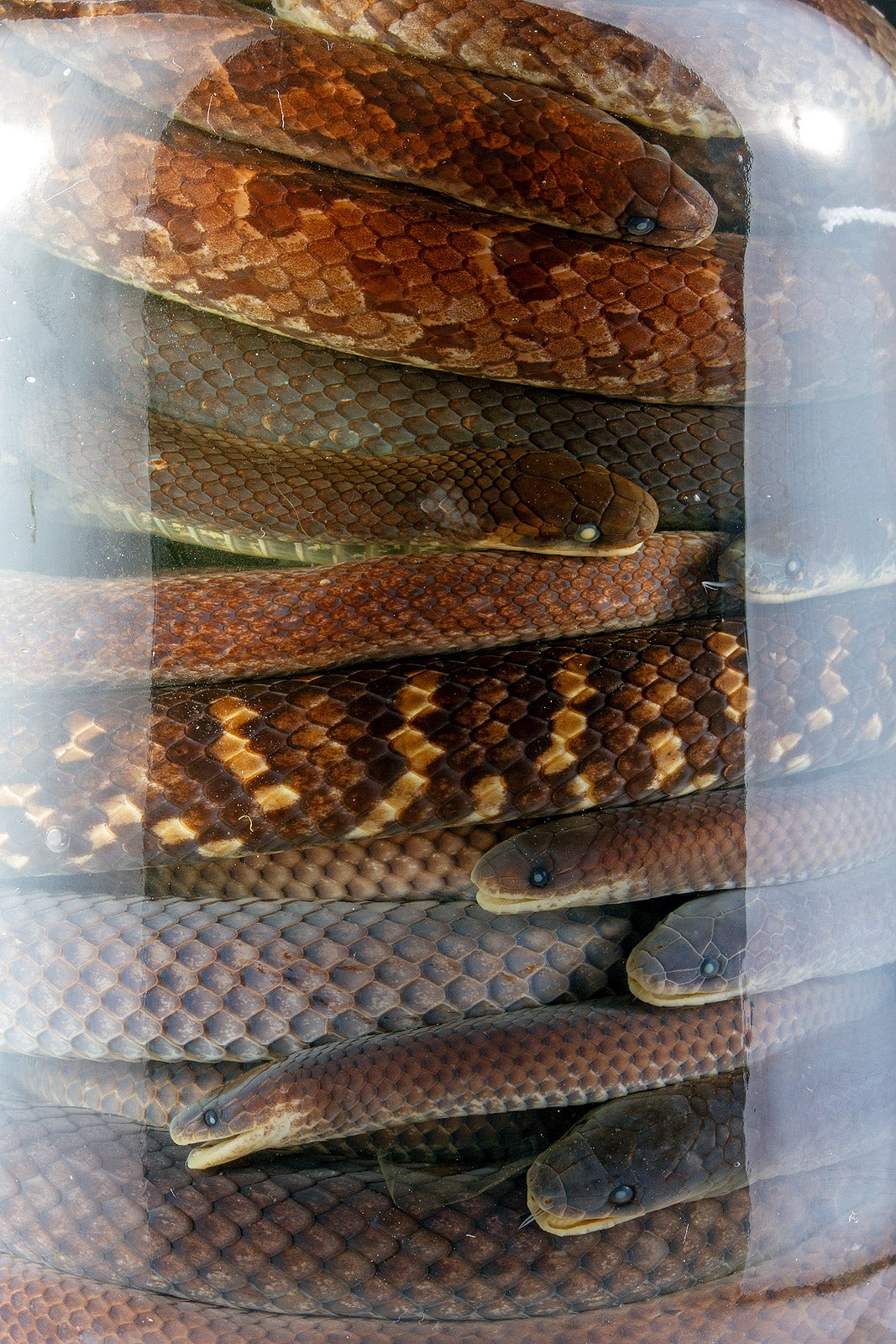Three new species of ‘archaic’ snake found under graves in Ecuador
‘Unique and cryptic reptiles’ live entire lives underground

Three new species of subterranean snake have been found in Ecuador, living beneath graves and churches in remote towns in the Andes mountains.
The sepulchral serpents – all types of ground snakes, which spend most of their lives underground – are said to be "small, cylindrical, and rather archaic-looking".
As such, they are known as a "fossorial" group of snakes and belong to the Atractus group of snakes, which now has up to 150 known species
The researchers, from Ecuador’s Universidad San Francisco de Quito and environmental campaign group Khamai Foundation, who described the species for the first time, said relatively few people have seen any species of ground snake or have even heard about their existence.
"This is probably because these serpents are shy and generally rare, and they remain hidden throughout most of their lives," the team said.
Additionally, most known species inhabit remote cloud forests and live buried underground or in deep crevices.
The discovery of the three new species took place "rather fortuitously and in places where one would probably not expect to find these animals", the research team said.
The Discovery Ground Snake (Atractus discovery) was found hidden underground in a small graveyard in a remote cloud forest town in southeastern Ecuador, and the two other new species – Atractus zgap and Atractus michaelsabini were found beside an old church and in a small school.
"All of this seems to suggest that, at least in the Andes, new species of snakes might be lurking just around the corner," the team said.
Alejandro Arteaga, grantee of The Explorers Club Discovery Expeditions and researcher at Khamai Foundation, who led the research said: “The discovery of these new snakes is only the first step towards a much larger conservation project.
“Now, thanks to the encouragement of ZGAP [Ecuador’s Zoological Society for the Conservation of Species and Populations], we have already started the process of establishing a nature reserve to protect the ground snakes.
"This action would not have been possible without first unveiling the existence of these unique and cryptic reptiles, even if it meant momentarily disturbing the peace of the dead in the graveyard where they live.”

But the research team said that despite the good news of the new discoveries, the majority of the native habitat of the snakes has already been destroyed.
As a result of deforestation, "the ground snakes find themselves in the need to take refuge in spaces used by humans (both dead and alive), where they are usually killed on sight", the team said.
Diego Piñán, a teacher in the town where one of the new reptiles was found, said: “When I first arrived at El Chaco in 2013, I used to see many dead snakes on the road. Others were [killed with] machetes or with stones.
"Now, after years of talking about the importance of snakes, both kids and their parents, while still wary of snakes, now appreciate them and protect them.”
Fortunately for the research team, Mr Piñán kept many of the dead snakes he found, preserving them in alcohol-filled jars.
These were later used by the research team to help establish the newly found snake species as new to science.
The research is published in the journal ZooKeys.







Join our commenting forum
Join thought-provoking conversations, follow other Independent readers and see their replies
Comments